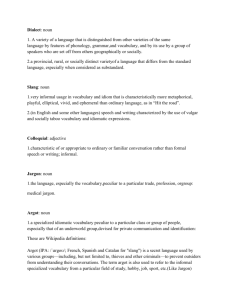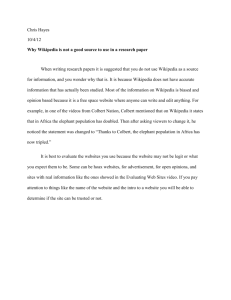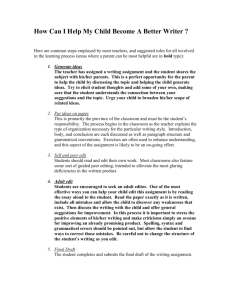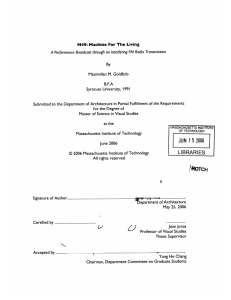Argot - Wikipedia, the free encyclopedia
advertisement
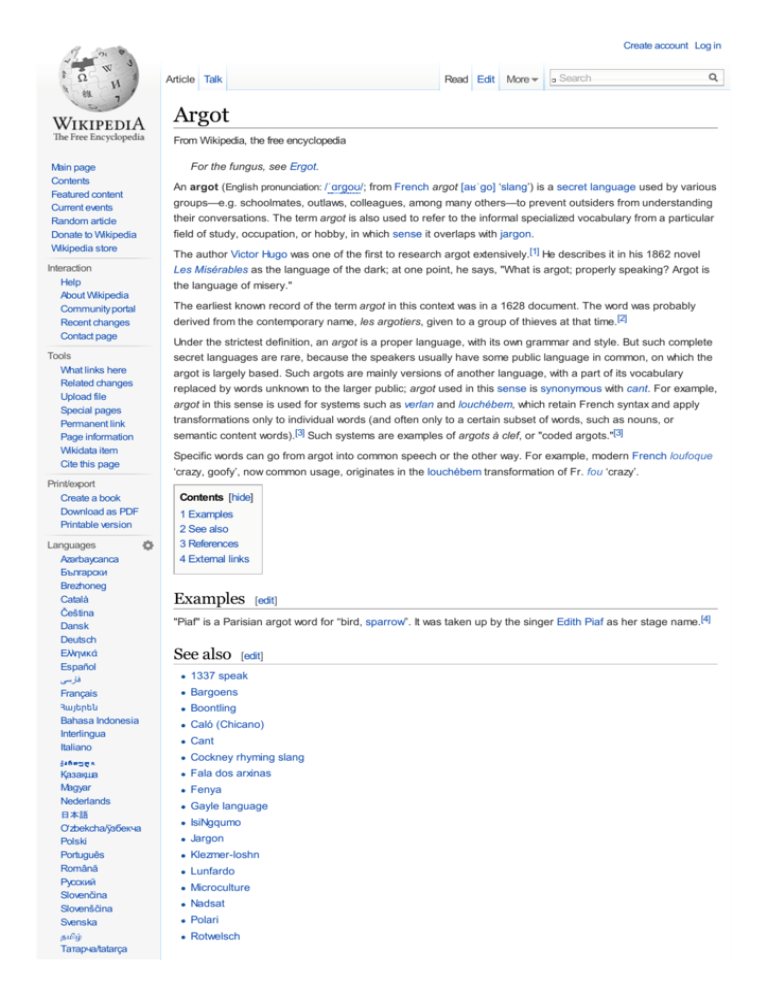
Create account Log in Article Talk Read Edit More Search Argot From Wikipedia, the free encyclopedia Main page Contents Featured content Current events Random article Donate to Wikipedia Wikipedia store Interaction Help About Wikipedia Community portal Recent changes Contact page Tools What links here Related changes Upload file Special pages Permanent link Page information Wikidata item Cite this page Print/export Create a book Download as PDF Printable version Languages Azərbaycanca Български Brezhoneg Català Čeština Dansk Deutsch Ελληνικά Español ﻓﺎرﺳﯽ Français Հայերեն Bahasa Indonesia Interlingua Italiano Қазақша Magyar Nederlands 日本語 Oʻzbekcha/ўзбекча Polski Português Română Русский Slovenčina Slovenščina Svenska தமி Татарча/tatarça For the fungus, see Ergot. An argot (English pronunciation: /ˈɑrɡoʊ/; from French argot [aʁˈɡo] ‘slang’) is a secret language used by various groups—e.g. schoolmates, outlaws, colleagues, among many others—to prevent outsiders from understanding their conversations. The term argot is also used to refer to the informal specialized vocabulary from a particular field of study, occupation, or hobby, in which sense it overlaps with jargon. The author Victor Hugo was one of the first to research argot extensively.[1] He describes it in his 1862 novel Les Misérables as the language of the dark; at one point, he says, "What is argot; properly speaking? Argot is the language of misery." The earliest known record of the term argot in this context was in a 1628 document. The word was probably derived from the contemporary name, les argotiers, given to a group of thieves at that time.[2] Under the strictest definition, an argot is a proper language, with its own grammar and style. But such complete secret languages are rare, because the speakers usually have some public language in common, on which the argot is largely based. Such argots are mainly versions of another language, with a part of its vocabulary replaced by words unknown to the larger public; argot used in this sense is synonymous with cant. For example, argot in this sense is used for systems such as verlan and louchébem, which retain French syntax and apply transformations only to individual words (and often only to a certain subset of words, such as nouns, or semantic content words).[3] Such systems are examples of argots à clef, or "coded argots."[3] Specific words can go from argot into common speech or the other way. For example, modern French loufoque ‘crazy, goofy’, now common usage, originates in the louchébem transformation of Fr. fou ‘crazy’. Contents [hide] 1 Examples 2 See also 3 References 4 External links Examples [edit] "Piaf" is a Parisian argot word for “bird, sparrow”. It was taken up by the singer Edith Piaf as her stage name.[4] See also [edit] 1337 speak Bargoens Boontling Caló (Chicano) Cant Cockney rhyming slang Fala dos arxinas Fenya Gayle language IsiNgqumo Jargon Klezmer-loshn Lunfardo Microculture Nadsat Polari Rotwelsch Українська 中文 Edit links Lazăr Şăineanu Shelta Thieves' cant Verlan References [edit] 1. ^ Schwartz, Robert M. "Interesting Facts about Convicts of France in the 19th Century" . Mt. Holyoke University. 2. ^ Guiraud, Pierre, L'Argot. Que sais-je?, Paris: PUF, 1958, p. 700 3. ^ a b Valdman, Albert (May 2000). "La Langue des faubourgs et des banlieues: de l'argot au français populaire". The French Review (in French) (American Association of Teachers of French) 73 (6): 1179–1192. JSTOR 399371 . 4. ^ Judith Thurman (June 25, 2007). "French Blues" . The New Yorker. Retrieved May 5, 2015. External links [edit] Look up argot in Wiktionary, the free dictionary. Authority control GND: 4136494-6 Categories: Cant languages Folklore This page was last modified on 26 May 2015, at 01:21. Text is available under the Creative Commons Attribution-ShareAlike License; additional terms may apply. By using this site, you agree to the Terms of Use and Privacy Policy. Wikipedia® is a registered trademark of the Wikimedia Foundation, Inc., a non-profit organization. Privacy policy About Wikipedia Disclaimers Contact Wikipedia Developers Mobile view
